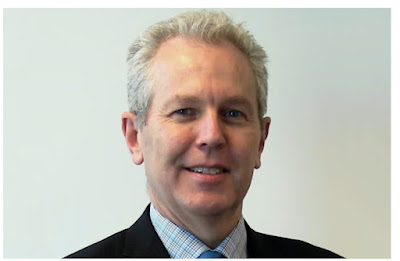“Engineers like to solve problems. If there are no problems handily available, they will create their own problems."
- Scott Adams ( via Worley Parsons CS)
A submission of note:
Generally, it is not beneficial for the Australian Economy for the banks to have such a large percentage of Australia’s cash and the legislation that protects them is too powerful. On the other hand, the legislation that protects Australians has been white-anted in a Sierpinski Triangle process that leaves this legislation looking like a Swiss cheese or a Sierpinski Triangle. There are too many agencies that are paid handsomely to ensure that the banks deliver Benefits to Australia and the Swiss cheese approach means that some aspects are not controlled at all.
The Basel agreements should be redrafted to reflect the interests of resource-rich countries rather than just the interests of resource-poor powers. I am pleased Australia is starting to talk to sister countries such as Brazil and Canada. Additionally the US Federal Reserve is under pressure for several issues, with the alleged money laundering of $141.2B to Brussels being an example that has been widely reported. Colin Barnet has questioned the competency of people running our major corporations and I have been asking the same question for several years. Ross Gittens reports that the macro economists have replaced by lawyers.
Consequently I support very few of the 44 Recommendations at this stage. As I reported in my 2014 G20 / David Murray submission, I take the royal command “It is your responsibility to look after your own money” very seriously.
Epilogue : ATO SES reshuffle sees tech chief role booted down a rung
ATO assistant commissioner, international, David Allen, said a recently updated treaty with the Swiss had greatly increased their powers to hunt down individuals dodging tax. On top of this, the OECD and G20 are working on a common reporting standard that will see information held by banks and other financial institutions shared between tax authorities.
Mr Allen said the Tax Office would be undertaking its first information exchange with Swiss authorities under the new treaty on December 22nd, just days after the amnesty closes (on December 19).
"That first request is about a series of (five) high-wealth individuals that have we have concerns about and that we suspect may have a Swiss bank account," he said.
"We also have an informer via a treaty country that has given us a list of Australians with Swiss bank accounts. There's 122 names on the list. This is significant as its first time we've made a request for information and we are confident that they [Swiss authorities] will supply the information that we need. This is not a fishing expedition."
He said the agency had also separately been given information from a bank detailing 2000 Australians with accounts in Vanuatu. "We will use that to determine whether they are correctly reporting offshore income," he said.
The head of law firm Arnold Bloch Leibler, Mark Leibler, who advises the nation's wealthiest people and has made a number of lodgements on behalf of his clients for the amnesty, said it had been "incredibly successful".
"I think in the end, it will be what I had predicted, and there will be billions brought back [into the tax net]," Mr Leibler said. "There's been a last-minute spate of people who have lodged expressions of interest with my firm. A lot of them felt it was too good to be true."
Mr Leibler said the majority of clients had shares and money in Swiss bank accounts that had been sitting there for decades. Only a few had property offshore. Aside from Switzerland, he said other countries where income and assets were hidden included Hong Kong, Israel, Liechtenstein, the Bahamas and Panama. Per client, the amounts varied "from a couple of million of dollars to tens of millions - big amounts of money", he said.
ATO tax amnesty nets billions, but hunt for rich with secret Swiss accounts continues
David is currently acting Chief Service Delivery Officer. In this role, David leads the Service Delivery Group which is responsible for a broad range of the ATO's foundation services for all segments of the community.
These include processing all payments, activity statements, income tax returns, superannuation lodgments and other forms, as well as administering the Tax File Number register, Australian Business Register and registers held on behalf of the superannuation industry.
David joined the ATO in 2010 as an Assistant Commissioner in Public Groups & Internationals, working in Capital Gains Tax risk, Internationals and in 2016, was the ATO’s delegate to the Organisation for Economic Co-operation Development (OECD) based in Paris.
In 2018 David was promoted to Deputy Commissioner and established the Enterprise Strategy and Design (ESD) business line which takes the leadership role in working with business areas to shape the ATO’s strategic direction, risk management, planning and reporting, internal audit and design.
Prior to joining the ATO, David held senior roles in different tiers of the public service including Commonwealth, United Kingdom, NSW and local government.
David has a degree in Engineering and a Master of Business Administration from Australian Graduate School of Management.
Service Delivery Group Chief Service Delivery Officer - David Allen (acting)
David Allen Deputy Commissioner - Enterprise Strategy and Design, Australian Taxation Office


